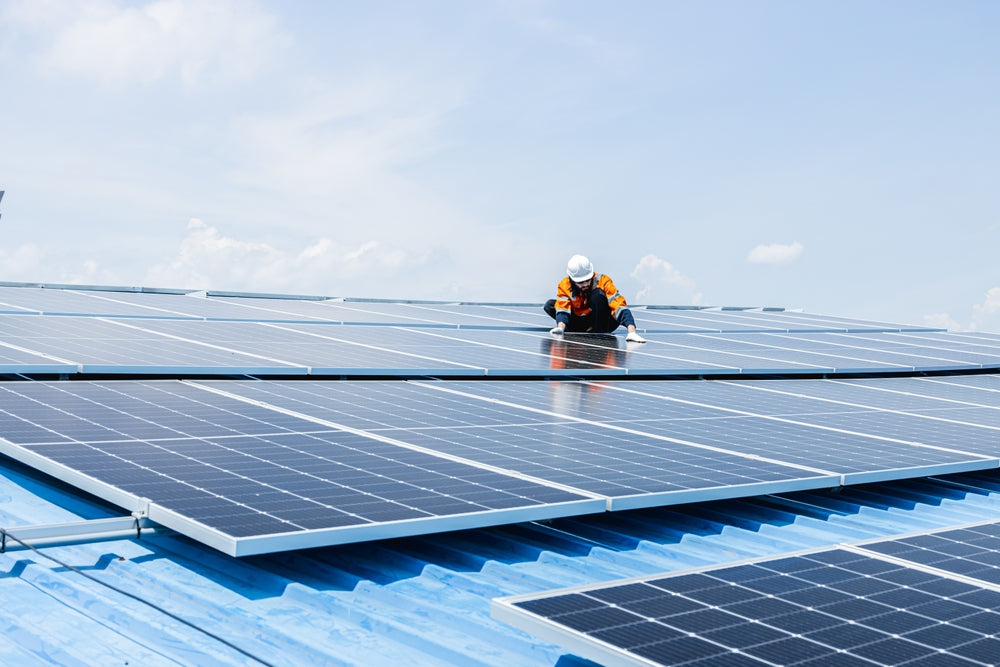
Solar energy is often associated with sunny days and clear skies, but what happens when the weather turns gloomy? For those living in regions with frequent rainy or cloudy weather, the question arises: Do solar panels still work effectively in such conditions? Understanding how solar panels perform in less-than-ideal weather is crucial for anyone considering a switch to solar energy.
In this article, we will explore the functionality of solar panels for cloudy weather, highlight the best solar panels for cloudy weather, and discuss how the Pakistani brand "PowerHouseExpress" is making solar energy more accessible in all types of weather conditions.
PowerHouseExpress: Leading the Way in Solar Energy in Pakistan
In Pakistan, where energy shortages and fluctuating electricity prices are common, many people are turning to solar energy as a reliable and cost-effective solution. PowerHouseExpress, a leading Pakistani brand, has been at the forefront of this solar revolution.
They specialize in providing high-quality solar panels that are designed to perform efficiently even in cloudy or rainy conditions. PowerHouseExpress solar panels are engineered to maximize energy production, making them an ideal choice for anyone looking to invest in solar panels for cloudy weather.
Their products are known for durability, efficiency, and affordability, ensuring that solar energy remains a viable option, regardless of the weather.
Understanding Solar Panels and Cloudy Weather
How Solar Panels Work
To understand how solar panels function in cloudy weather, it's important first to grasp the basics of how they work. Solar panels are composed of photovoltaic (PV) cells that convert sunlight into electricity.
When sunlight hits these cells, it excites electrons, creating an electric current. This current is then harnessed and converted into usable energy for your home or business.
Also Read: How Solar Panels Work A Comprehensive Guide
Solar Panels and Cloudy Weather
Contrary to popular belief, solar panels do not require direct sunlight to generate electricity. They can still produce energy on cloudy or rainy days, though the efficiency may be reduced. Solar panels for cloudy weather are designed to capture both direct sunlight and diffused light—sunlight that has been scattered by clouds or other atmospheric particles.
While the energy output on a cloudy day may be lower than on a bright, sunny day, solar panels can still function effectively in less-than-ideal weather.
The Impact of Cloud Cover on Solar Panels
When clouds cover the sky, they scatter sunlight, reducing the amount of direct sunlight that reaches the solar panels. However, solar panels can still capture and convert this diffused light into electricity.
On average, solar panels can generate about 10-25% of their typical output on a fully overcast day. This percentage can vary depending on the thickness of the cloud cover and the quality of the solar panels being used.
Best Solar Panels for Cloudy Weather
Characteristics of Solar Panels for Cloudy Weather
Not all solar panels are created equal, and some are better suited for cloudy conditions than others. The best solar panels for cloudy weather typically have the following characteristics:
- High Efficiency: Panels with a higher efficiency rating can convert a greater percentage of available sunlight into electricity, making them more effective in low-light conditions.
- Monocrystalline Cells: Monocrystalline solar panels are generally more efficient than polycrystalline panels, particularly in cloudy weather. Their higher efficiency rates make them a better choice for regions with frequent cloud cover.
- Advanced Technology: Some solar panels incorporate technologies like bifacial cells or multi-junction cells, which can capture sunlight from multiple angles or wavelengths, further enhancing their performance in cloudy weather.
PowerHouseExpress Solar Panels: A Perfect Match for Cloudy Weather
PowerHouse has developed a range of solar panels specifically designed to perform well in all weather conditions, including cloudy and rainy days. Their panels use high-efficiency monocrystalline cells that are optimized to capture diffused light.
Additionally, PowerHouse panels are built with advanced technologies that allow them to maintain high energy production even when the sun isn't shining brightly. For homeowners and businesses looking for the best solar panels for cloudy weather, PowerHouse offers reliable solutions that ensure consistent energy generation, rain or shine.
How Much Energy Can You Expect from Solar Panels in Cloudy Weather?
Factors Affecting Energy Production
Several factors can influence how much energy your solar panels produce during cloudy weather:
- Panel Orientation: The angle and direction in which your solar panels are installed can significantly impact their performance. Panels that are optimally oriented to capture the most sunlight will generate more electricity, even on cloudy days.
- Location: Geographic location plays a crucial role in solar energy production. Areas closer to the equator receive more consistent sunlight year-round, while regions further from the equator may experience more seasonal variation in solar energy production.
- Time of Year: Solar panels typically produce less energy during the winter months due to shorter daylight hours and lower sun angles. However, in many regions, winter also brings more cloudy days, which can further reduce energy output.
Energy Output Expectations
On a fully overcast day, you can expect your solar panels to produce about 10-25% of their normal output. This means that if your panels typically generate 5 kilowatt-hours (kWh) of electricity on a sunny day, they might produce only 0.5-1.25 kWh on a cloudy day.
While this is a significant reduction, it's important to remember that solar energy systems are designed to produce more energy than you need on sunny days, creating a surplus that can be stored in batteries or fed back into the grid for later use.
Maximizing Solar Panel Efficiency in Cloudy Weather
Regular Maintenance
Keeping your solar panels clean and well-maintained is crucial for maximizing their efficiency, especially in cloudy weather. Dirt, debris, and grime can accumulate on the panels, reducing their ability to capture sunlight. Regular cleaning and inspections can help ensure that your panels are operating at peak performance.
Using Solar Batteries
One of the best ways to ensure a steady supply of electricity during cloudy weather is to pair your solar panels with a solar battery system. Solar batteries store excess energy generated on sunny days, which can then be used when your panels aren't producing as much electricity. This not only helps you maintain a consistent energy supply but also maximizes the overall efficiency of your solar energy system.
Investing in High-Efficiency Panels
As mentioned earlier, choosing high-efficiency solar panels is essential for maximizing energy production in cloudy weather. Brands like PowerHouse offer high-efficiency panels that are designed to perform well in all conditions, making them a smart investment for anyone looking to install solar panels in regions with variable weather.
Environmental and Economic Benefits of Solar Panels in Cloudy Weather
Environmental Impact
Even in cloudy weather, solar panels contribute to reducing your carbon footprint. By generating electricity from a renewable source, you're helping to decrease reliance on fossil fuels, which are a major contributor to greenhouse gas emissions. The more energy your solar panels produce, the less you need to draw from the grid, which often relies on non-renewable energy sources.
Cost Savings
Over time, solar panels can lead to significant cost savings, even in regions with frequent cloud cover. By reducing your dependence on grid electricity, you can lower your energy bills. Additionally, many regions offer incentives, tax breaks, or rebates for installing solar panels, which can help offset the initial installation costs. PowerHouse's high-efficiency panels, designed for optimal performance in all weather conditions, further enhance these cost savings by maximizing energy production.
Conclusion
Solar panels are a viable and effective energy solution, even in regions with frequent cloudy or rainy weather. Brands like PowerHouse have developed advanced solar panel technologies that ensure consistent energy production, regardless of the weather conditions.
By investing in the best solar panels for cloudy weather, such as those offered by PowerHouse, you can enjoy the benefits of solar energy year-round. Whether you're looking to reduce your carbon footprint or save on energy costs, solar panels provide a reliable and sustainable energy source, rain or shine.








